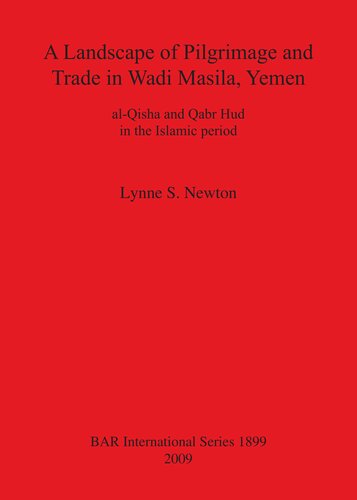

Most ebook files are in PDF format, so you can easily read them using various software such as Foxit Reader or directly on the Google Chrome browser.
Some ebook files are released by publishers in other formats such as .awz, .mobi, .epub, .fb2, etc. You may need to install specific software to read these formats on mobile/PC, such as Calibre.
Please read the tutorial at this link: https://ebookbell.com/faq
We offer FREE conversion to the popular formats you request; however, this may take some time. Therefore, right after payment, please email us, and we will try to provide the service as quickly as possible.
For some exceptional file formats or broken links (if any), please refrain from opening any disputes. Instead, email us first, and we will try to assist within a maximum of 6 hours.
EbookBell Team

4.3
38 reviewsArchaeological excavations were carried out at al-Qisha, located on the Wadi Masila in the Mahra region of the Republic of Yemen. Situated along the Northern Indian Ocean coast, the Wadi Masila is an integral part of the Hadramaut drainage system located within the geological Hadramaut Arch. Regional surveys were carried out between 1997-2000, defining Bronze and Iron Age and Islamic period sites. Al-Qisha is an Islamic period settlement site that spans over 1 km and includes an extensive village (part of which is still inhabited), a cemetery, and a mosque. Al-Qisha as an archaeological site is enmeshed in an historical and ethnographic landscape of trade and mediation. This volume has three goals. The main objective is to present the data collected from excavations at al-Qisha, the first excavated Islamic period settlement site in the Mahra region of Yemen to date. The second goal is to examine this site in its greater cultural and physical landscape. And third, getting to the "route" of the matter, al-Qisha serves as a gateway community linked with the Ba'Abbad of Qabr Hud, the tomb of the pre-Islamic prophet Hud. This study is unique in that it presents a first attempt to integrate archaeology with the scant history and sparse ethnography of the Mahraand Hadramaut regions.